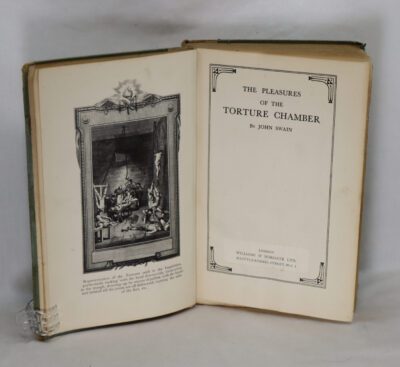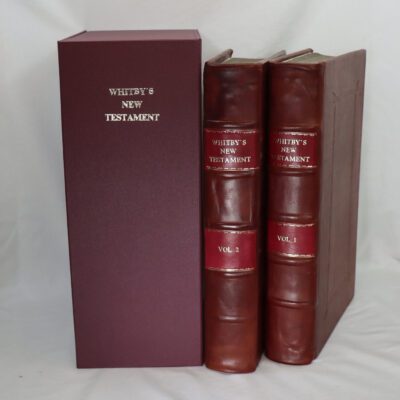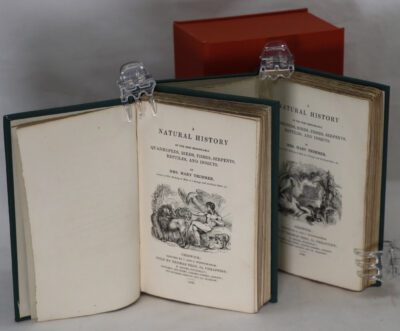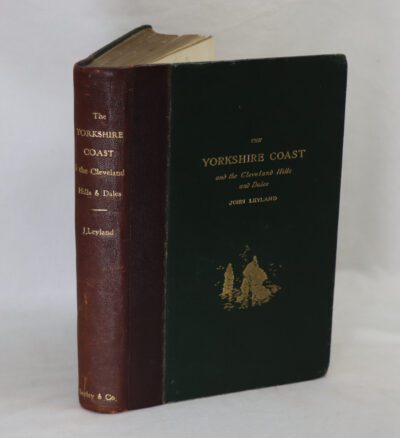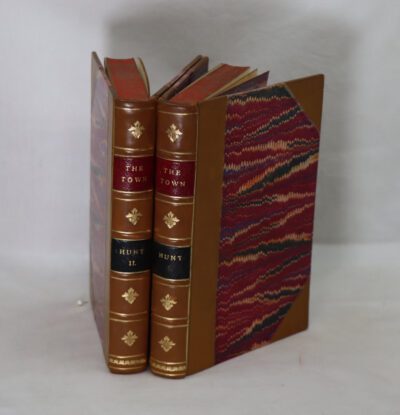Milton's Works. Volume 1.
By John Milton
Printed: 1806
Publisher: W Suttaby B Crosby. London
| Dimensions | 8 × 13 × 3 cm |
|---|---|
| Language |
Language: English
Size (cminches): 8 x 13 x 3
Condition: Fine (See explanation of ratings)
Item information
Description
Full calf binding with gilt decoration to the boards. Professionally re-backed in dyed calf retaining original boards, endpapers, marker ribbon and headbands. Black spine labels and blind tooling.
It is the intent of F.B.A. to provide an in-depth photographic presentation of this book offered so to almost stimulate your feel and touch on the book. If requested, more traditional book descriptions are immediately available.
First Volume of a two-volume set; this being Paradise Lost
published in 1806
Paradise Lost is an epic poem in blank verse by the 17th-century English poet John Milton (1608–1674). The first version, published in 1667, consists of ten books with over ten thousand lines of verse. A second edition followed in 1674, arranged into twelve books (in the manner of Virgil’s Aeneid) with minor revisions throughout. It is considered to be Milton’s masterpiece, and it helped solidify his reputation as one of the greatest English poets of his time. The poem concerns the biblical story of the Fall of Man: the temptation of Adam and Eve by the fallen angel Satan and their expulsion from the Garden of Eden.
John Milton (9 December 1608 – 8 November 1674) was an English poet and intellectual who served as a civil servant for the Commonwealth of England under its Council of State and later under Oliver Cromwell. He wrote at a time of religious flux and political upheaval, and is best known for his epic poem Paradise Lost (1667). Written in blank verse, Paradise Lost is widely considered to be one of the greatest works of literature ever written.
Writing in English, Latin, and Italian, he achieved international renown within his lifetime; his celebrated Areopagitica (1644), written in condemnation of pre-publication censorship, is among history’s most influential and impassioned defences of freedom of speech and freedom of the press. His desire for freedom extended into his style: he introduced new words (coined from Latin and Ancient Greek) to the English language, and was the first modern writer to employ unrhymed verse outside of the theatre or translations.
William Hayley’s 1796 biography called him the “greatest English author”, and he remains generally regarded “as one of the pre-eminent writers in the English language”, though critical reception has oscillated in the centuries since his death (often on account of his republicanism). Samuel Johnson praised Paradise Lost as “a poem which … with respect to design may claim the first place, and with respect to performance, the second, among the productions of the human mind”, though he (a Tory) described Milton’s politics as those of an “acrimonious and surly republican”. Poets such as William Blake, William Wordsworth and Thomas Hardy revered him.
Want to know more about this item?

Related products
Share this Page with a friend



